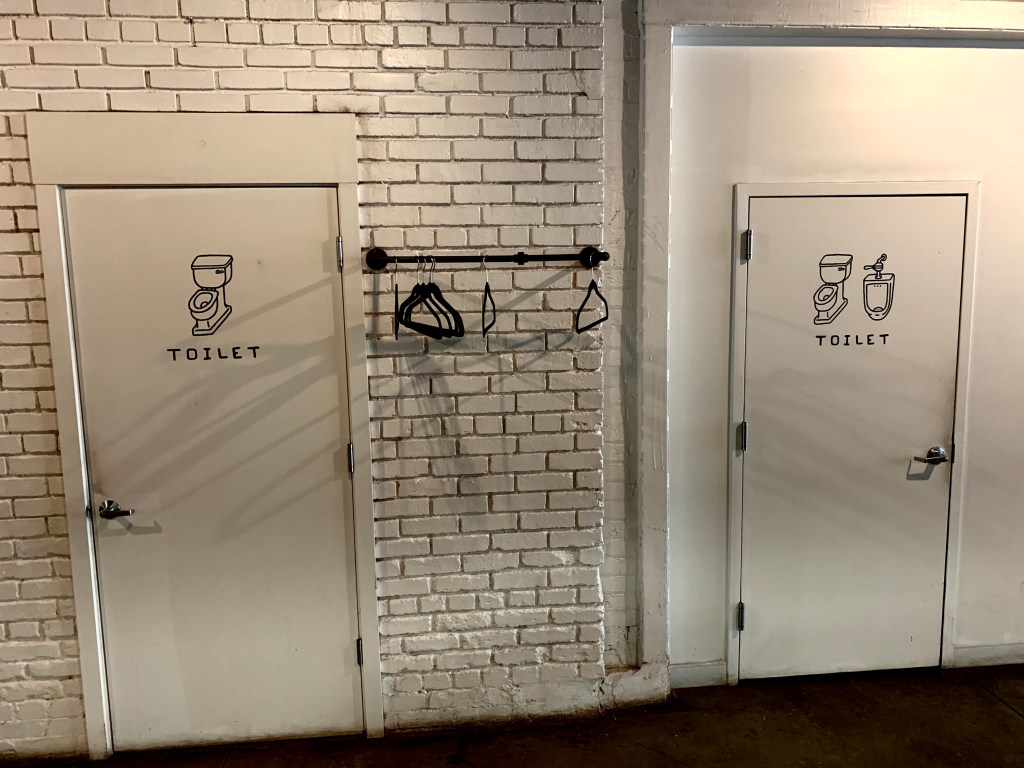
Photos by Suzie Kelly.
This article originally appeared on MUNCHIES in August 2015.
They placed Hank Williams in a wheelchair and hauled him from the Knoxville hotel to his powder-blue Cadillac convertible, where his driver, a college freshman named Charles Carr, waited.
Loaded on booze, morphine, chloral hydrate, and vitamin B12, Williams crawled into the back seat, wrapped a blanket around himself, and laid down. Tasked with ferrying Williams to a New Year’s Day gig in Dayton, Ohio, Carr drove out of Knoxville, Tennessee, and into legend.
Videos by VICE
Near midnight, Carr stopped in downtown Bristol, Virginia, to get gas and look for a relief driver. He went to a cab stand and noticed a diner, the Burger Bar, next door. Carr asked Williams if he wanted anything to eat. Williams declined, saying he just wanted to sleep.
A few hours on down the road, Carr reached back to check on Williams and found he was stone cold. Carr took him to a hospital in Oak Hill, West Virginia, where, just before daybreak, an intern officially declared Williams dead and placed his time of expiration at about 1 AM that morning, New Year’s Day, 1953.

 Joe Deel
Joe Deel
By the time the 29-year-old Williams expired on a snowy road somewhere in Appalachia, he had blazed his way into country music immortality. He’d been inducted—and expelled—from Nashville’s Grand Ole Opry. He’d recorded 66 tracks under his own name, with more than half becoming hits, plus 14 as “Luke the Drifter” and a handful as part of a husband-and-wife act, Hank & Audrey. More than 25,000 people gathered for his funeral.
The night of his death is still a hot topic of discussion and speculation more than 60 years later. The only witnesses to the overnight drive were Carr and his temporary relief driver, taken on somewhere in Virginia or West Virginia.
The relief driver disappeared and died a couple of years later before anyone could interview him. Carr shared his story until his death in 2013, but memories can be tricky, especially decades removed from a nighttime drive through the disorienting, windy mountain roads of Appalachia.

The episode in Bristol remains especially murky, particularly on the question of whether it was the location of Hank’s final words. The most common account has Williams declining Carr’s offer of food. Another version says Williams didn’t respond to Carr and may even have been dead by that point. Yet another has Williams walking into the diner and getting a last meal.
That last one—with Williams sitting down to eat—comes more from wishful thinking and marketing than from reality. It’s the story that the Burger Bar, the diner where Carr stopped, peddled for decades. The details changed with each owner, but more than one claimed that not only did Williams eat there, but you could see the very spot where he sat.
That’s rubbish, says Joe Deel, the Burger Bar’s most recent owner and operator.
“He didn’t come in and eat. He never got out of the car,” says Deel, who looks like the grown-up version of the Big Boy-ish logo that adorns the Burger Bar. “Back in Knoxville, they put him in the back seat of the car. He was passed out. If he was dead a few hours later, he didn’t get better.”
In a 2003 blog post at the Tennessean, Peter Cooper sought to debunk the link between the Burger Bar and Williams’ last words, claiming the building housed a dry cleaner’s in the 50s. Instead, Cooper says Carr bought food in Bristol at Trayer’s Restaurant.
Deel believes the Burger Bar connection is legitimate, otherwise it never would have made its way into the story.

For certain, the legend of Williams, his music, and his last ride feature prominently at the Burger Bar. The restaurant and its website are filled with Williams photos and news clippings. Specialty burgers are named after his songs, too, whether it’s “Your Cheatin’ Heart” with green chiles, sautéed mushrooms, grilled onions, and cheese, or its bestseller, the “I Can’t Help It” bacon cheeseburger.
The Burger Bar’s burgers are comparable to In-N-Out Burger—quality bun and meat, and a selection of specialties that provide variety without pretense.

It’s a slight step up from the Burger Bar’s long history as a greasy spoon, but not quite as high falutin’ as a previous iteration that tried selling upscale $15 burgers. The restaurant attracts a steady lunchtime set whose regular business is crucial to the bottom line, but also a steady stream of pilgrims who come to pay their respects to Hank Williams and country’s roots.
Bristol is the city, after all, that provides the name of the Bristol Sessions, a pivotal set of 1927 recordings by producer Ralph Peer that included the debuts of Jimmie Rodgers and the Carter Family and exploded the commercial popularity of country music. Later, bluegrass pioneer Ralph Stanley cut his teeth performing on Bristol’s WCYB radio station with his brother Carter.
Deel reveals a metal door to an alley that connects to the kitchen. Old-timers, he says, have told him that was a special door for Jimmie Rodgers. More likely, it was used to serve food to black customers during the days of Jim Crow, when they weren’t allowed to dine inside.

Surrounded by all of this country music history in Bristol, it’s tempting to ask whether Williams made the right decision by turning down a meal at the Burger Bar. In retrospect, opting to stick with his liquor/morphine/chloral hydrate/vitamin B12 cocktail might have been the best move for his legacy, if not for his health. It certainly was the right decision for the Burger Bar’s business.




